The Effectiveness of a Marine Environmental Education Program in the Maldives
2017
Florence Barraud (MSc Marine Environmental Management - University of York)

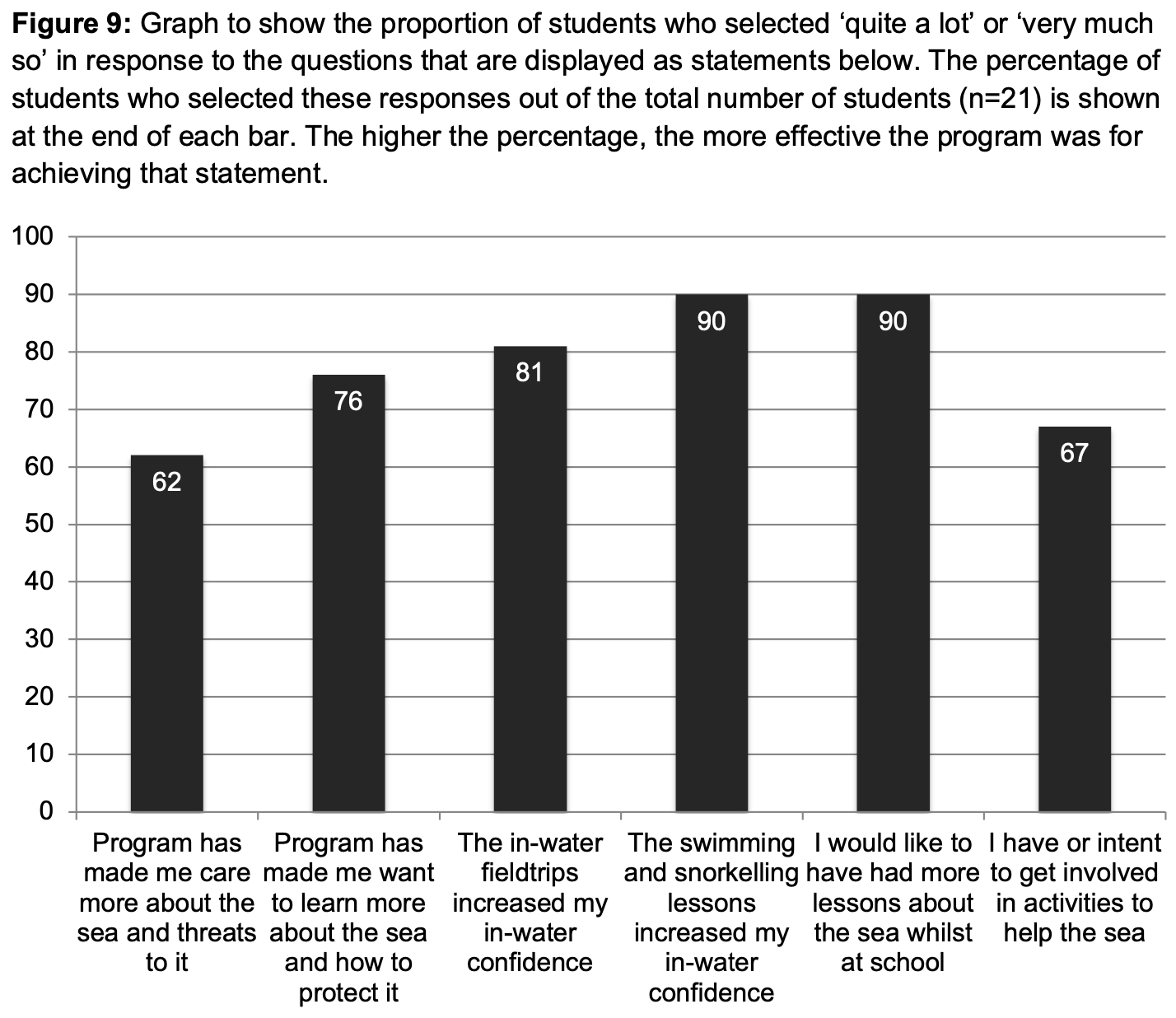
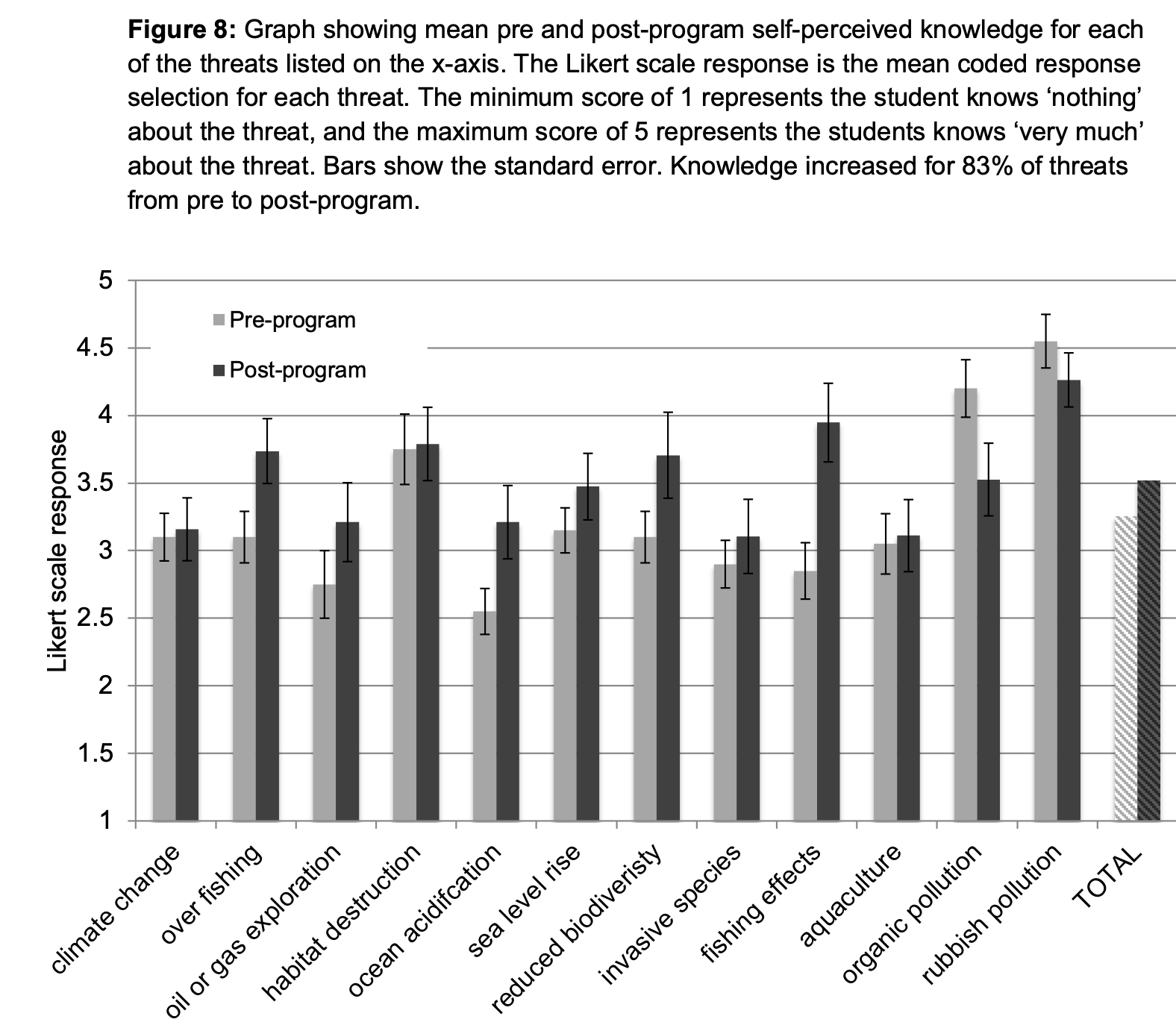
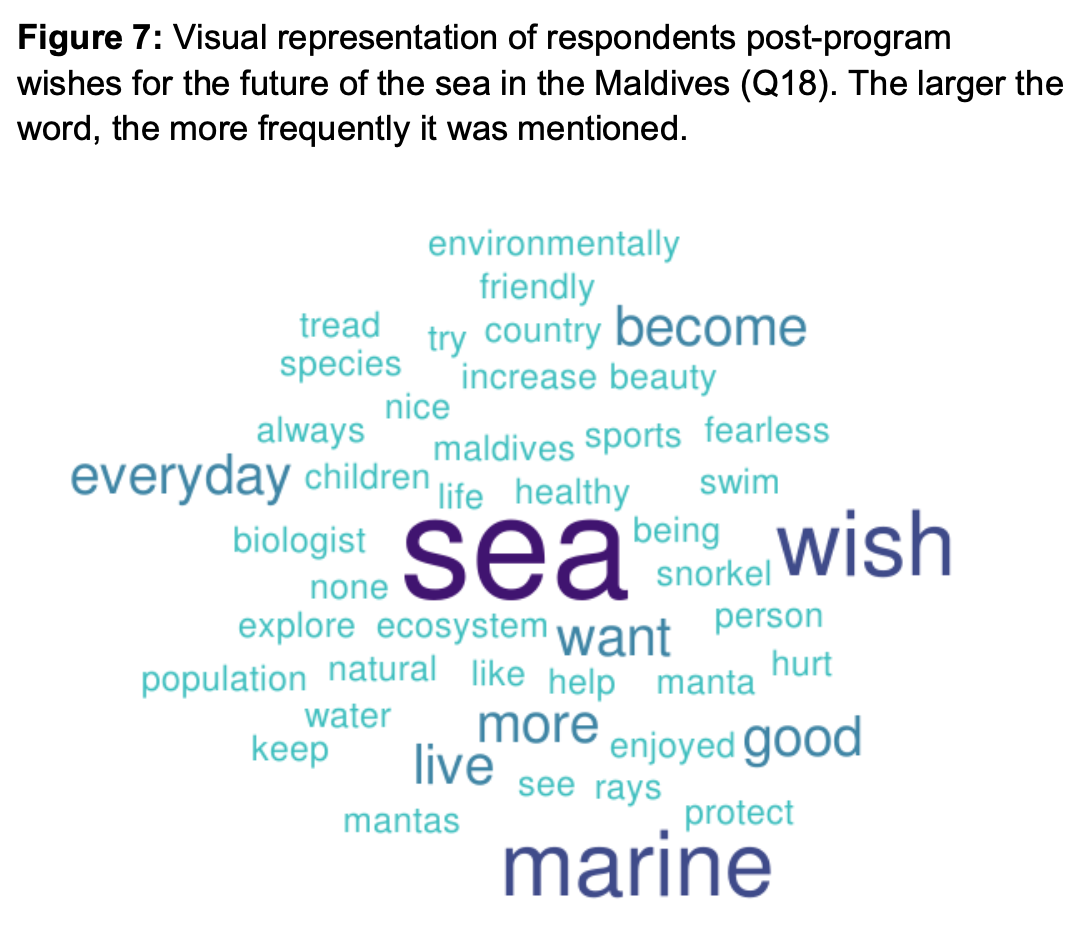
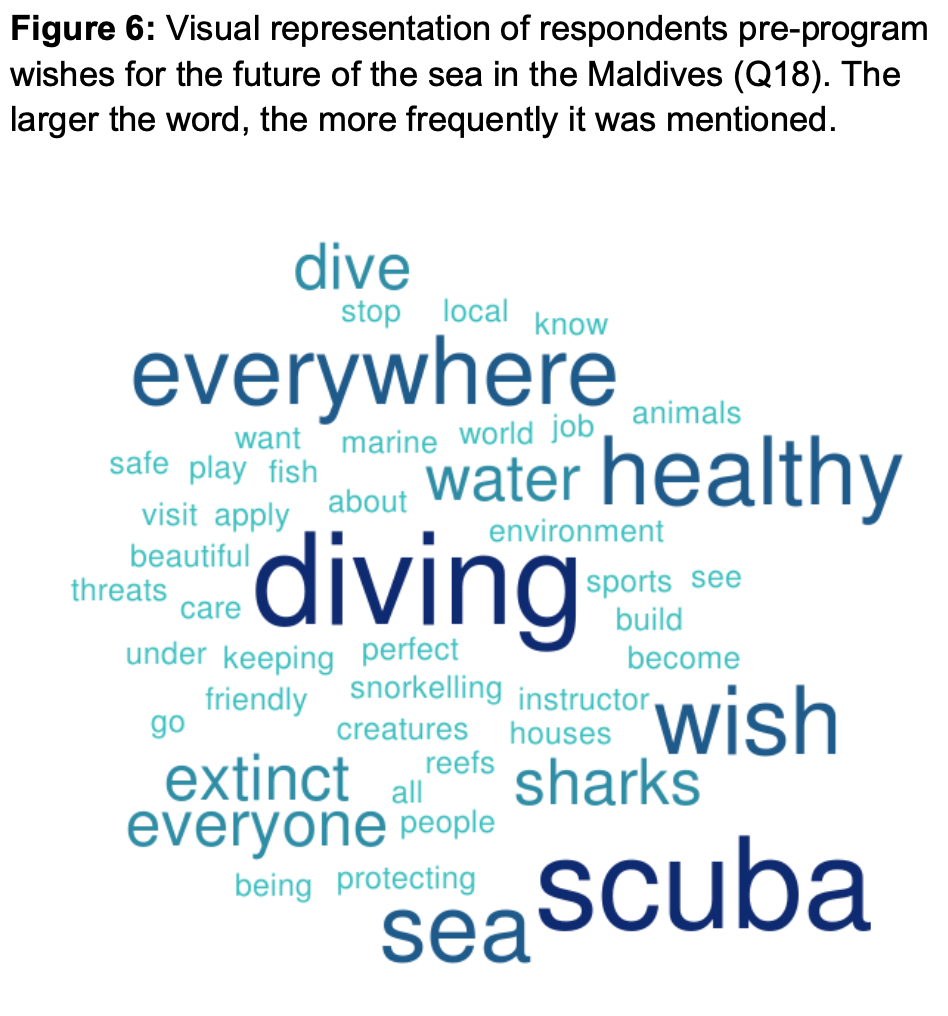
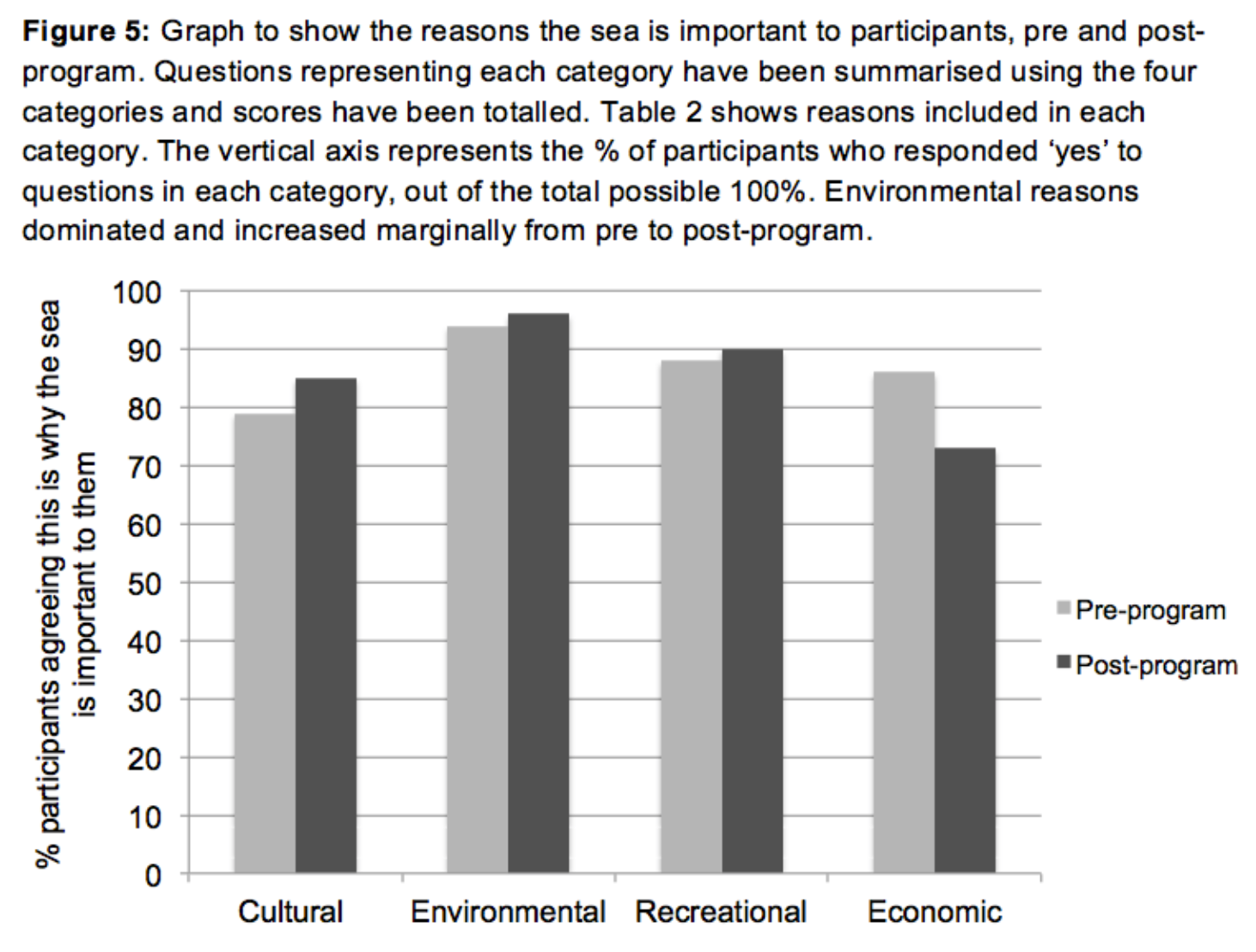
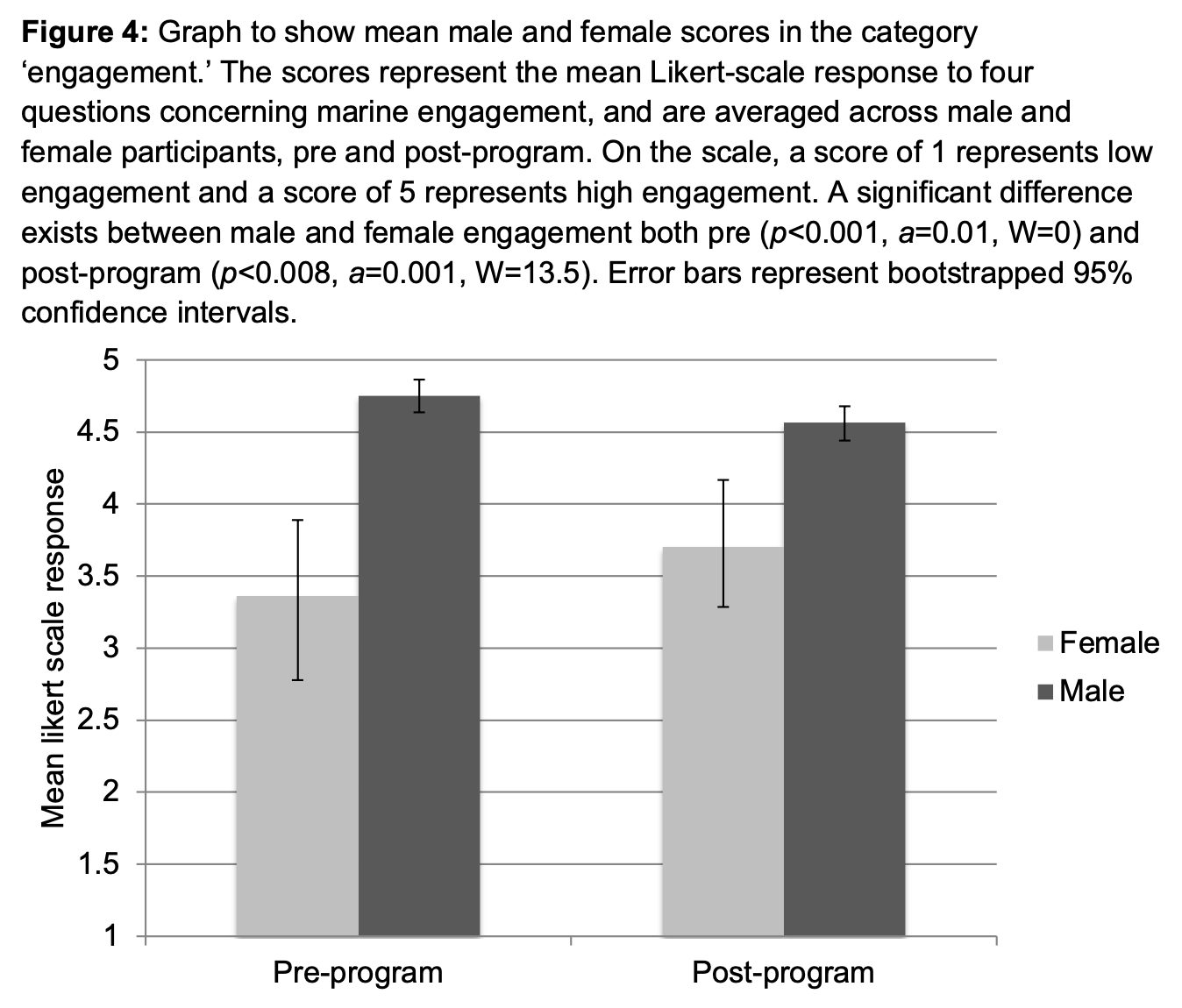
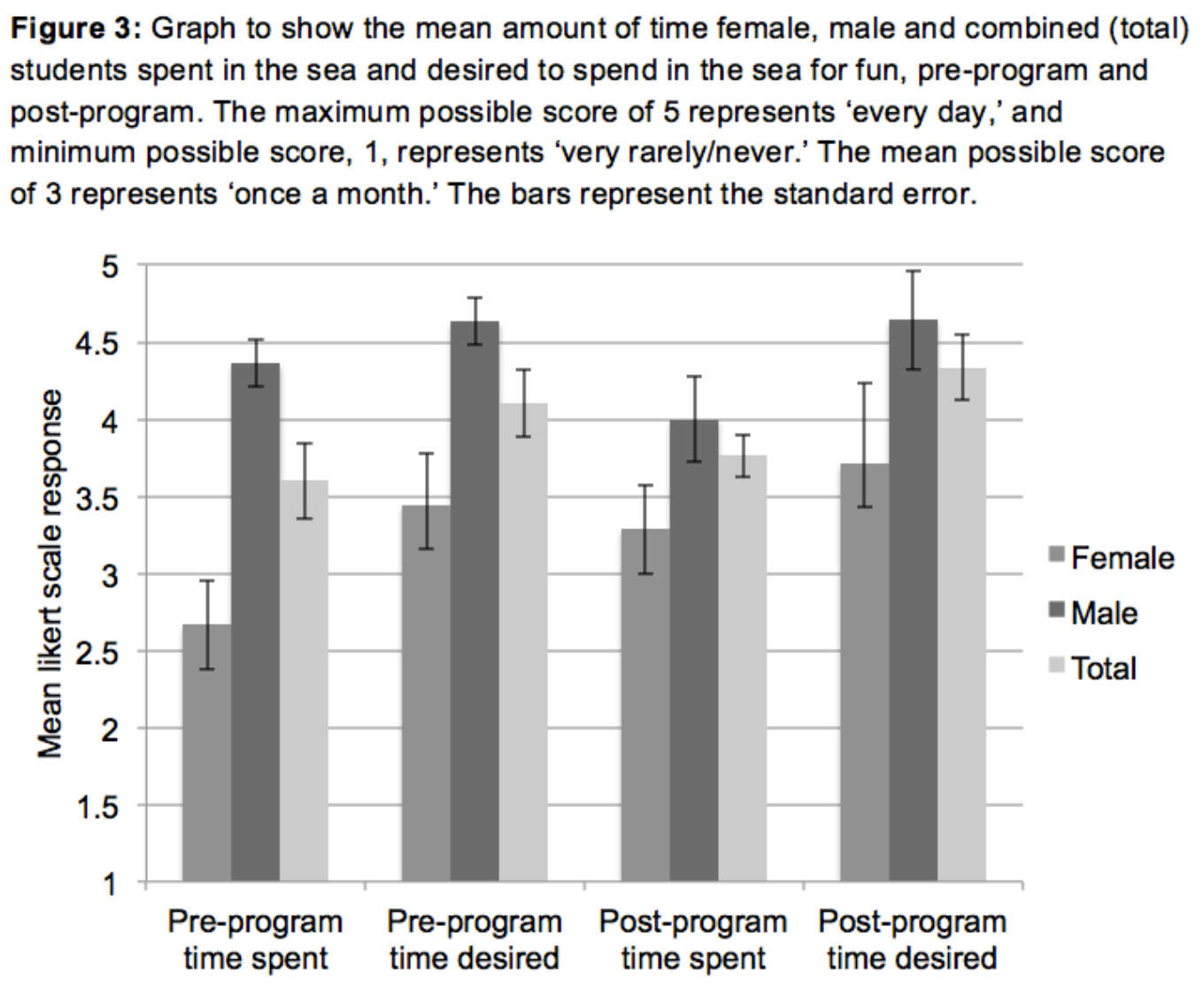
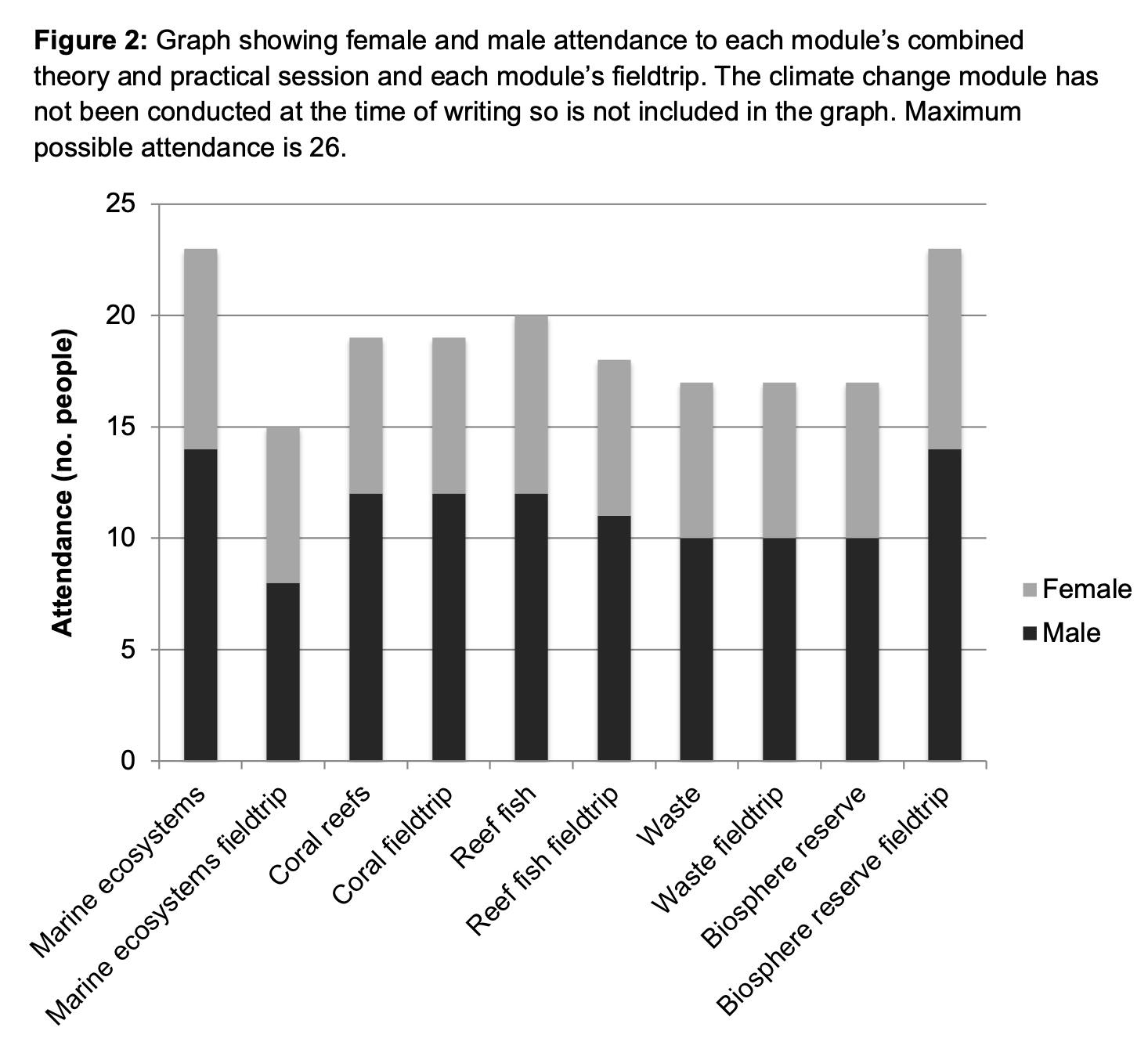
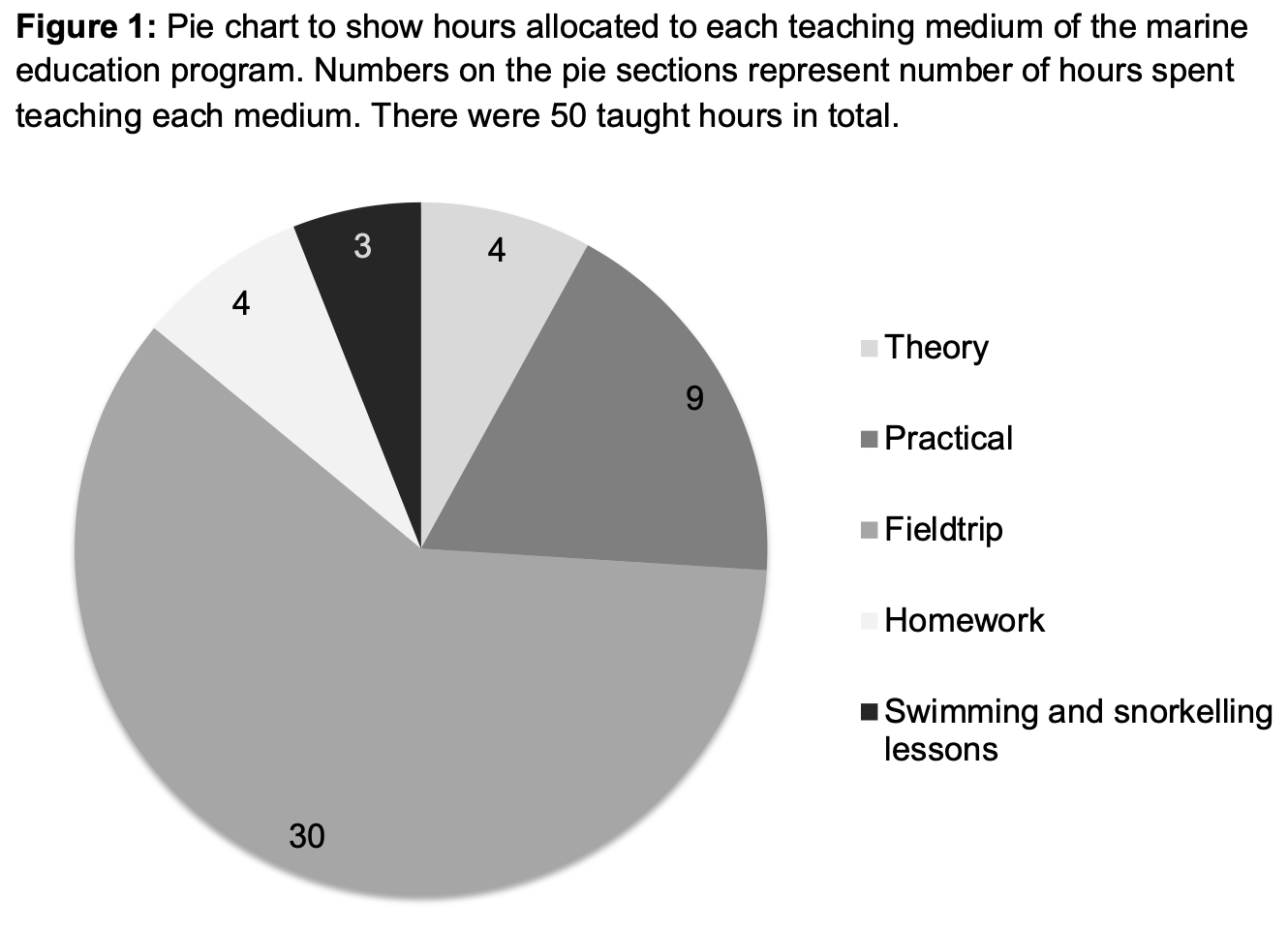
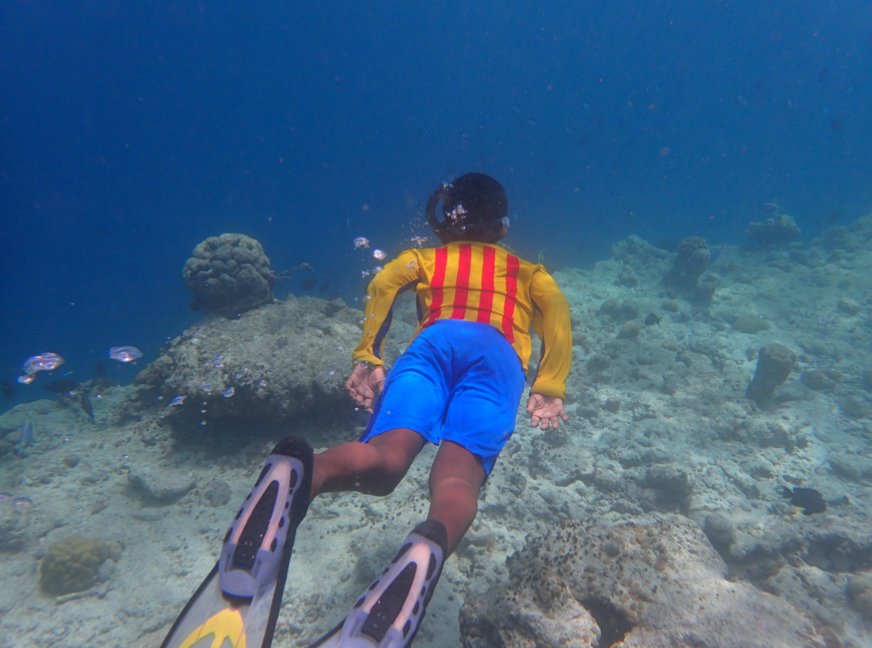
Summary: The Maldives heavily relies on healthy marine biodiversity, but it faces increasing threats from human activities and climate change. Environmental education is crucial for effective marine management, and integrating it into school curricula can develop environmentally aware individuals. A four-month marine environmental education program was implemented in a Maldivian secondary school, and pre- and post-program surveys assessed students' engagement, knowledge, and awareness. The program proved highly effective, increasing participants' confidence, pro-environmental behaviour, and interest in the sea. However, a gender disparity was observed, with females scoring lower than males in all categories, possibly due to religious or cultural factors. Further research is needed to address this disparity and encourage more youth participation in marine conservation occupations. Nationwide environmental education programs, including swimming components, are recommended to enhance marine environmental awareness and management.
Abstract
“The Maldives relies heavily on healthy marine biodiversity, which is poorly protected and increasingly vulnerable to anthropogenic and climate-change associated threats. Environmental education is a key tool for effective marine environmental management. Incorporating environmental education at school is a key way to develop environmentally aware individuals that can mitigate environmental issues and assist sustainable development. A four-month marine environmental education program was developed and implemented in a Maldivian secondary school. Pre-program and post-program surveys were used to assess students’ marine environmental engagement, knowledge and awareness, and the effectiveness of the program. Statistical tests were performed to identify categorical relationships, assess differences in pre and post-program survey results and examine the influence of gender or school grade. Students’ marine engagement, awareness and knowledge increased after the program. The program was highly effective, and increased participants in-water confidence, proenvironmental behaviour and recreational and academic interest in the sea. Considerable gender disparity was identified, with females scoring lower than males in all categories. Religious principles or cultural norms could have impacted females’ significantly lower marine engagement scores. Lower marine participation may be linked to lower awareness or knowledge. Further research is necessary to examine categorical relationships and address gender disparities in marine participation. The study shows environmental education could increase the number of young Maldivian’s in marine conservation occupations and mitigate a prevalent secondary-school environmental education deficiency. Environmental education that incorporates learn-to-swim components should be instated nationwide to increase marine environmental participation, awareness and knowledge, and improve environmental management.”
Author Affiliations
University of York
The Manta Trust
